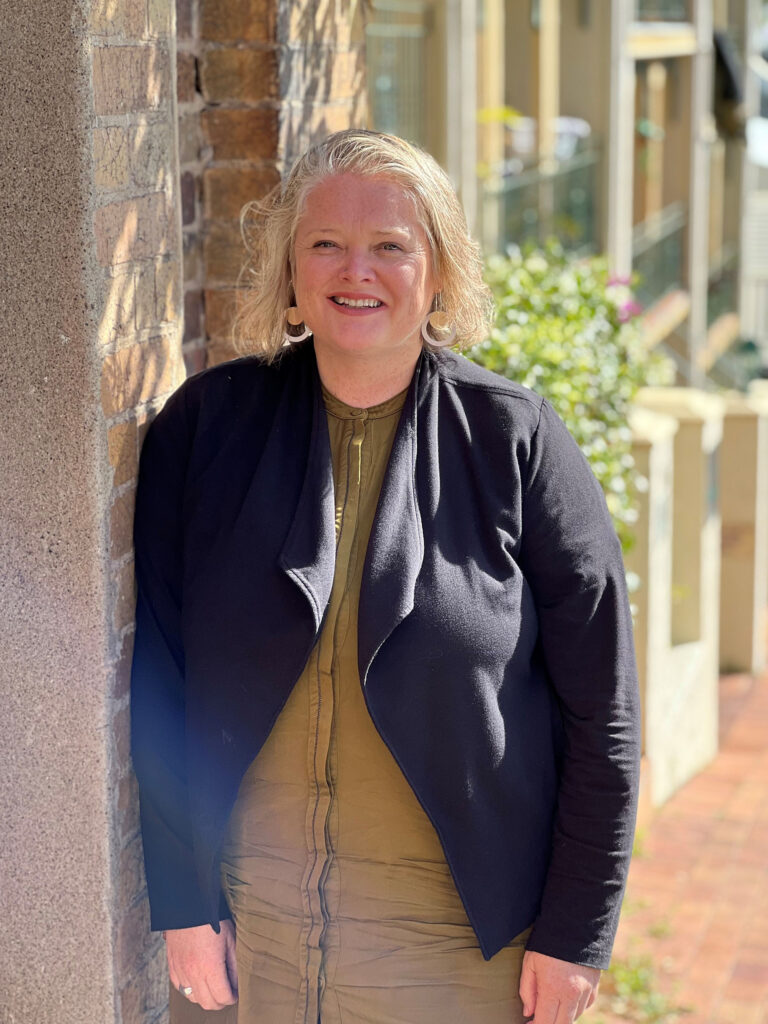Clair Duffy
Contact
- cduffy@8pt.com.au
- 07 3073 1737
- 0418 775 997
- 07 3369 7098
Areas of Practice
- Criminal Law
- Appellate – criminal
- Public Law & Public International Law
- Administrative Law
- Human Rights (domestic, international)
- Inquests
- Commissions of Inquiry
- Statutory Tribunals
- International Criminal Law

Professional History
Clair was first called to the Queensland bar in 2002, while working for the Commonwealth DPP in Brisbane. She went on to work in the Melbourne office of the CDPP, where she worked until 2005. During this time, Clair worked as a prosecutor of federal crimes, including on white collar crimes, social security and other types of fraud, and customs offences such as drug importation.
In 2005, Clair took up a position with the United Nations in Tanzania, where she worked for five years on cases relating to the Rwandan genocide. She worked on a number of high-profile cases involving the prosecution of former Rwandan government ministers and other officials for war crimes, crimes against humanity and genocide. From 2010 to 2014, Clair ran field offices for two renowned international human rights organisations, monitoring the trials of former Khmer Rouge officials in Cambodia, and prosecutions taking place in The Hague at the International Criminal Court.
After almost a decade working internationally, Clair began teaching in the Faculty of Law at Bond University in 2015, where she has since taught Evidence, Criminal Law and International Criminal Law. She has also ran the faculty’s Human Rights Clinic, and has coached various international mooting teams.
Clair speaks fluent French, and intermediate level Spanish.
Qualifications, Appointments and Admissions
1997 – Bachelor of Arts (French), University of Queensland
2002 – Bachelor of Laws, University of Queensland
2002 – Admitted as Barrister-at-law, Supreme Court of Queensland
2003 – Admitted as Barrister and Solicitor, Supreme Court of Victoria
2007 – Master of Laws (Public and International Law), University of Melbourne
2016-2017 – Member, Queensland Parole Boards (Statutory Appointment)
2022 – Barrister in private practice
Publications
Field, van Caenegam and Duffy, Queensland Evidence Law (6th ed.) (LexisNexis)
Eric A. Witte and Clair Duffy, Options for Justice: A Handbook for Designing Accountability Mechanisms for Grave Crimes, (Open Society Foundations, New York, 2018). Available here: https://www.justiceinitiative.org/uploads/89c53e2e-1454-45ef-b4dc-3ed668cdc188/options-for-justice-20180918.pdf
Clair Duffy, The Future of Cases 003/004 at the Extraordinary Chambers in the Courts of Cambodia: October 2012 (Open Society Justice Initiative, New York, 2012). Available here: https://www.justiceinitiative.org/uploads/20fe99cf-bc19-4299-813a-d81055c30d22/eccc-report-cases3and4-100112_0.pdf
Clair Duffy, Recent Developments at the Extraordinary Chambers in the Courts of Cambodia: February 2012 Update (Open Society Justice Initiative, New York, 2012). Available here: https://www.justiceinitiative.org/uploads/315fe382-8967-4d90-8308-2ad0cde779a3/cambodia-eccc-20120223.pdf
Clair Duffy, Recent Developments at the Extraordinary Chambers in the Courts of Cambodia: November 2011 (Open Society Justice Initiative, New York, 2011). Available here: https://www.justiceinitiative.org/uploads/57bc6049-0795-4d38-a41a-bcb8139a3876/eccc-developments-20111114.pdf
Clair Duffy, Recent Developments at the Extraordinary Chambers in the Courts of Cambodia: June 2011 Update (Open Society Justice Initiative, New York, 2011). Available here: https://www.justiceinitiative.org/uploads/b03ee0e6-f83e-4e77-a840-bbba70a1a4b6/cambodia-eccc-20110614.pdf
Clair Duffy, “ECCC Judicial Appointments: An Opportunity for the UN to Translate its Aspirations into Tangible Outcomes,” April 28, 2015, available at: http://www.ijmonitor.org/2015/04/eccc-judicial-appointments-an-opportunity-for-the-un-to-translate-its-aspirations-into-tangible-outcomes/
Clair Duffy, “Fundamental Fair Trial Questions Remain Unanswered Ahead of Tomorrow’s Judgment in the Katanga Case,” March 6, 2014, available at: http://www.ijmonitor.org/2014/03/fundamental-fair-trial-questions-remain-unanswered-ahead-of-tomorrows-judgment-in-the-katanga-case/
Clair Duffy, “In Cambodia, ‘Greater Cooperation with the Government’ Isn’t the Answer,” July 12, 2012, https://www.justiceinitiative.org/voices/und-12
Clair Duffy, “Khmer Rouge Court at Critical Point,” March 27, 2011, available at: http://www.opensocietyfoundations.org/voices/khmer-rouge-court-critical-point.
Clair Duffy, “Gender Crime Prosecution and the ICTR Legacy,” in International Humanitarian Law Magazine, Australian Red Cross, Issue 1, 2011, p. 16, available at https://www.redcross.org.au/getmedia/1c016a7c-615d-4ff9-9eed-a3df8a99a8f7/Punishing-war-crime-international-criminal-tribunals.pdf.aspx
October 2019 – Panelist, Australian International Criminal Law Workshop 2019, Griffith University, Brisbane, Australia. Topic: Current Observations on the Situation in El Salvador
September 2019 – Panelist, International Bar Association annual conference, session by IBA War Crimes Committee, Seoul, South Korea. Topic: “Fact-finding in Support of Accountability”.
July 2019 – Panelist, Foro Público – Innovaciones en justicia internacional para violaciones de derechos humanos, San Salvador, El Salvador. Topic: Nuevos Mecanismos para Enfrentar la Impunidad.
October 2018 – Panelist, Australian International Criminal Law Workshop 2018, University of Tasmania, Hobart, Australia (presented on abovementioned publication – Options for Justice: A Handbook for the Design of Accountability Mechanisms for Atrocity Crime).
Keynote speaker at Australian International Criminal Law Workshop 2014, University of New South Wales, Sydney, Australia (September 2014).
Working title of paper – “Karemera, Katanga and the Khmer Rouge: on-going modes of liability gaps in international criminal prosecution of sexualised violence offences.”
Speaker at 2014 Legacy Symposium of the International Criminal Tribunal for Rwanda, Arusha, Tanzania (6-7 November 2014) – “From referral to deferral: some fair trial rights implications of the evolution of International Tribunals’ mandates in the move towards complementarity”
10 October 2014: University of Queensland, TC Beirne School of Law Research Seminar Series (Brisbane, Australia) – “From Rwanda to The Hague, via Cambodia: a comparative look at three international criminal justice responses”